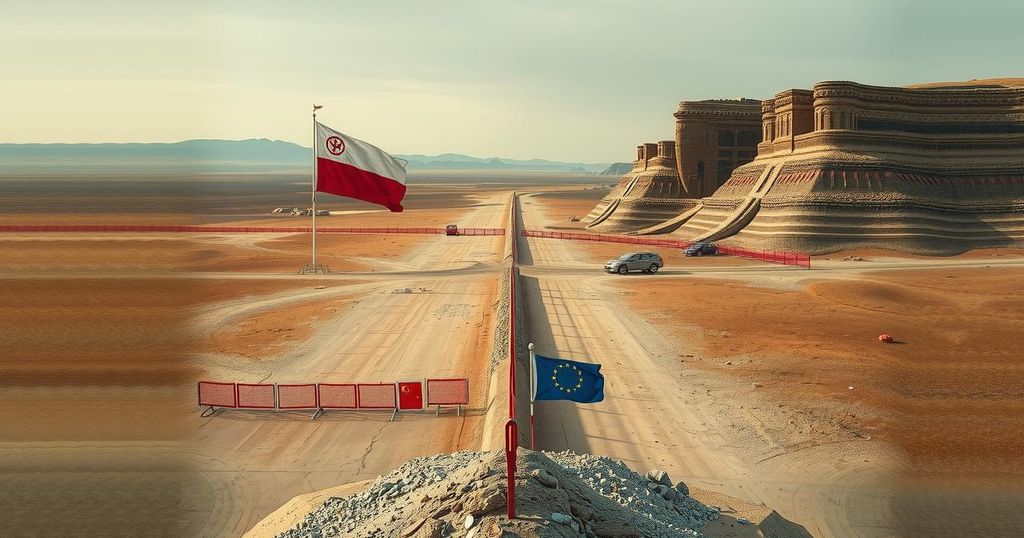U.S. Holds Climate Aid to South Africa Amid Rising Diplomatic Tensions

The U.S. has suspended $2.6 billion in climate finance to South Africa amidst tensions. Aid reductions may worsen the country’s energy crisis. Cultural factors in U.S. politics may further strain relations over issues like land policies, impacting climate and energy strategies in South Africa.
The United States has reportedly paused the distribution of $2.6 billion in multilateral climate finance to South Africa, indicative of deteriorating relations between the two countries. This aid suspension follows accusations directed at Pretoria regarding the unlawful expropriation of land from white farmers, a claim made without substantiation. Subsequently, South Africa’s ambassador to the United States has been declared “persona non grata” by the White House.
The broader reduction of American aid may significantly affect Africa’s climate finance requirements, with other affluent nations likely struggling to compensate for this shortfall. The head of Britain’s development finance office warned that “we’re entering a world of more constraints” and emphasized the necessity to “do more with less” under such circumstances.
Aid reductions could intensify South Africa’s ongoing energy crisis. Should the funding linked to the World Bank remain unapproved, it would significantly undermine South Africa’s initiatives aimed at decommissioning coal-fired plants, which currently contribute over 80% of the nation’s electricity supply. Despite ambitious climate objectives established in 2019, recent strategies proposed by Pretoria favor the retention of coal operations and a substantial increase in gas imports. A South African development expert noted that the nation possesses substantial wind and solar resources, suggesting that there is “no need for more fossil fuels.”
The situation is further complicated by the cultural politics emanating from the United States. The Trump Administration’s focus on South Africa concerning a controversial land law, coupled with its support for white South African “refugees,” exemplifies the extreme policy positions influenced by perceptions shaped by figures such as Elon Musk. With tensions already heightened over global conflicts in Ukraine and Gaza, some observers characterize American rhetoric regarding South Africa as leveraging it as a “cautionary tale,” reflecting fears prevalent among white populations in the United States and elsewhere.
In summary, the United States is reevaluating its financial assistance to South Africa amidst escalating diplomatic tensions. The stalling of climate finance could prove detrimental to South Africa’s energy management strategies. Furthermore, the intersection of U.S. domestic cultural matters with foreign policy continues to exacerbate relations between Washington and Pretoria, potentially influencing the trajectory of climate initiatives in the region.
Original Source: www.semafor.com








